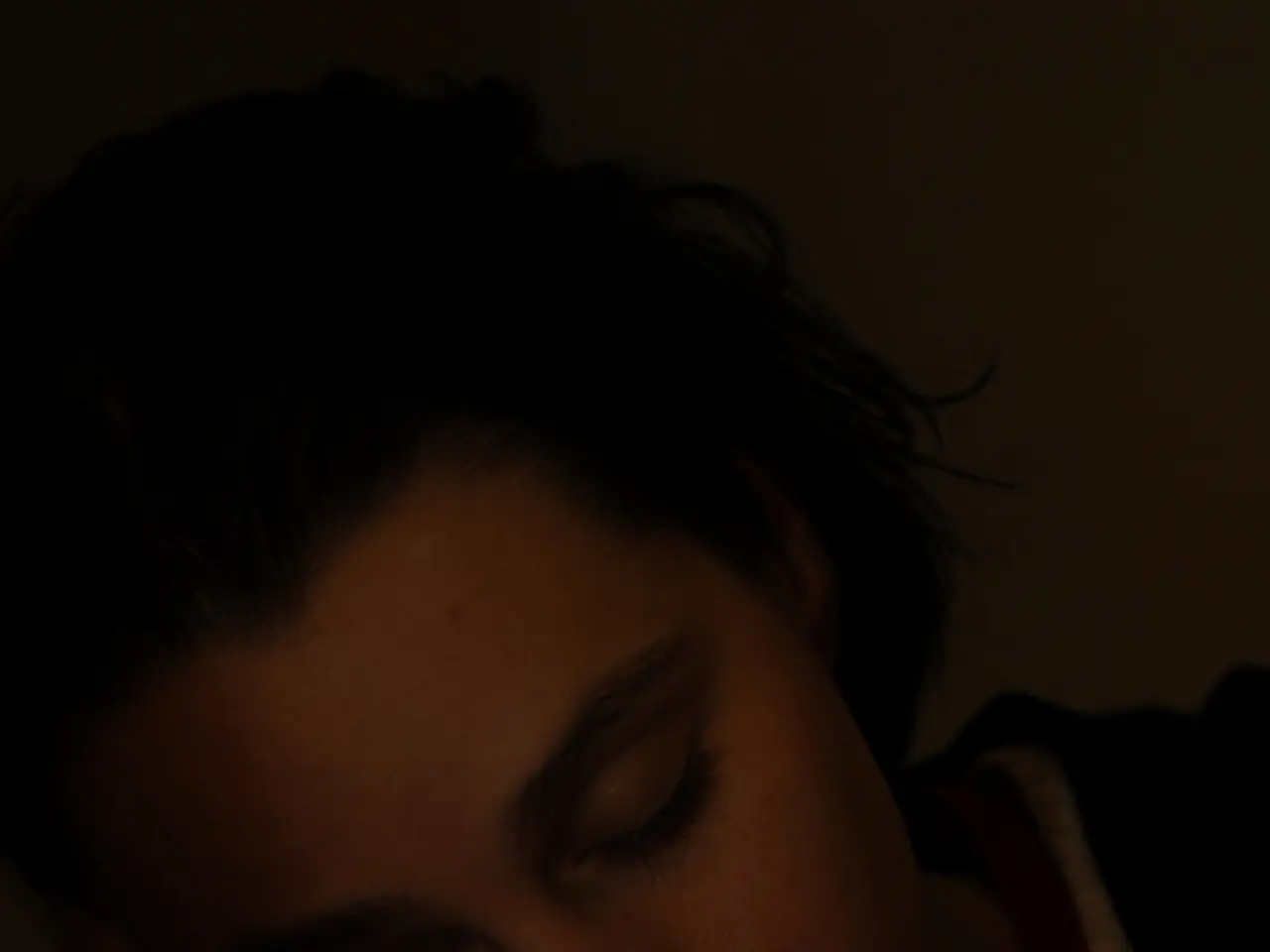Quick Guide to Rapidly Inducing Sleep in 5 Minutes
In the pursuit of a good night's sleep, many individuals turn to various techniques and methods to help them fall asleep more quickly. Among these methods, the Military Method, also known as the Army Sleep Method, and the Navy SEAL power napping technique are popular choices. However, it's essential to approach these techniques with a realistic understanding of their effectiveness.
The Military Method, derived from U.S. military practices, is a technique that may help individuals fall asleep within 10 seconds. The method involves brief facial muscle relaxation, allowing the tongue to relax, dropping the shoulders, relaxed breathing, visualizing a relaxing scene, or repeating the mantra "don't think." While anecdotal reports of its success are plentiful, it's important to note that there isn't a peer-reviewed study specifically addressing the Military Method's ability to induce sleep in under 10 seconds.
Another technique that gained popularity is the Navy SEAL power napping technique. This method focuses on relaxation and can be effective in reducing stress and promoting sleep, but it may not be aimed at such immediate sleep onset.
One technique supported by sleep science is the 4-7-8 breathing method, created by Dr. Andrew Weil. This method aims to use controlled breathing to aid relaxation and may help people fall asleep within minutes. The technique involves placing the tongue behind the upper front teeth, exhaling through the mouth, inhaling quietly through the nose for 4 seconds, holding the breath for 7 seconds, and exhaling through the mouth for 8 seconds.
Progressive muscle relaxation, a technique popular for those with anxiety, may also help individuals fall asleep faster and get better quality sleep. This method involves tensing each group of muscles in the body before consciously relaxing them again, moving from the face down to the toes.
In addition to these techniques, proper sleep hygiene plays a crucial role in falling asleep more easily and improving sleep quality. This includes getting plenty of exercise during the day but avoiding it close to bedtime, avoiding stimulants like alcohol, caffeine, nicotine, and spicy foods before bed, maintaining a comfortable sleep environment, and using a bedtime routine. A bedtime routine can include activities such as reading, listening to classical music, having a cup of chamomile tea, avoiding screens before bed, and taking a warm bath or shower before bed.
For those with persistent sleep concerns, it is important to seek a doctor's evaluation and treatment. Sleep restriction therapy, stimulus control therapy, and guided meditations and visualizations may also be beneficial. Sleep restriction therapy involves tailoring the time spent in bed to sleep needs, while stimulus control therapy fosters a link between an individual's bed and sleep by only using the bed for sleeping or sex, getting up if not falling asleep within a set time, not "clock-watching" while in bed, and keeping a consistent sleep schedule.
It's also worth noting that supplements such as melatonin, valerian root, and magnesium may help some individuals fall asleep, but it is important to speak to a doctor before taking any new supplements, especially for those who take other medications or have health conditions.
Lastly, children can benefit from many of the same techniques and methods as adults. This includes getting plenty of daytime physical activity, having a wind-down time before bed, practicing child-friendly meditations or breathing exercises, and creating a proper sleep environment.
In conclusion, while techniques like the Military Method and the Navy SEAL power napping technique can be helpful in promoting relaxation and reducing stress, it's essential to approach these methods with a realistic understanding of their effectiveness. Proper sleep hygiene, relaxation techniques, and seeking medical advice when necessary can all contribute to a good night's sleep.
- For people suffering from bipolar disorder, depression, obesity, or psoriasis, maintaining good sleep hygiene and practicing relaxation techniques, such as the 4-7-8 breathing method or progressive muscle relaxation, can help improve their overall health-and-wellness.
- Science has not yet provided a predictive analysis on the Military Method's success in helping individuals fall asleep within 10 seconds, contrasting the numerous anecdotal reports.
- Beyond the Military Method and the Navy SEAL power napping technique, there's a bedtime routine that could possibly help promote sleep, such as reading, listening to classical music, having a cup of chamomile tea, avoiding screens before bed, and taking a warm bath or shower before bed.
- In some cases, medical advice may be necessary for those with persistent sleep concerns, as sleep restriction therapy, stimulus control therapy, and guided meditations and visualizations can be beneficial.
- Aq (a placeholder or missing word), a supplement like melatonin, valerian root, or magnesium, may help some individuals fall asleep, but it is imperative to consult a doctor before taking any new supplements, especially for those with other medications or health conditions.




